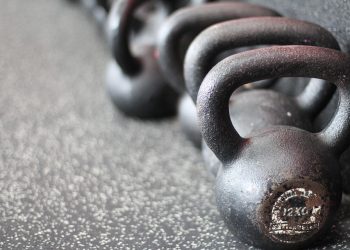Losing weight can feel overwhelming, bombarded as we are with fad diets and conflicting information. But at its core, weight loss is a scientific process. Understanding the fundamental principles can empower you to make informed choices and achieve sustainable results. This guide breaks down the science of weight loss in a simple, easy-to-understand way.
The Energy Balance Equation: Calories In vs. Calories Out
The foundation of weight loss is the principle of energy balance, often referred to as “calories in, calories out.” This means that to lose weight, you need to consume fewer calories than you expend. Let’s explore the components of this equation:
Calories In: What You Eat and Drink
This is the energy your body derives from the food and beverages you consume. Every food has a calorie content, and the cumulative total of your daily intake determines your calorie intake.
Calories Out: How Your Body Burns Energy
Your body burns calories through three primary mechanisms:
- Basal Metabolic Rate (BMR): This is the energy your body needs to function at rest, keeping vital organs working. It accounts for the largest percentage of your daily calorie expenditure. Factors like age, sex, muscle mass, and genetics influence your BMR.
- Thermic Effect of Food (TEF): This is the energy your body uses to digest, absorb, and process the nutrients from your food. Protein has a higher TEF than fats or carbohydrates.
- Activity Energy Expenditure (AEE): This is the energy you burn through physical activity, from walking and gardening to running and weightlifting. This is the most variable component of your calorie expenditure and the one you have the most control over.
Creating a Calorie Deficit
To lose weight, you need to create a calorie deficit, meaning you burn more calories than you consume. A deficit of 500 calories per day typically leads to a weight loss of about 1 pound per week. This is because one pound of fat contains approximately 3,500 calories.
Example: Let’s say your body burns 2000 calories per day (your Total Daily Energy Expenditure or TDEE). If you consume 1500 calories per day, you’ll be in a 500-calorie deficit, potentially leading to a 1-pound weight loss per week.
Macronutrients: The Building Blocks of Your Diet
Understanding macronutrients – protein, carbohydrates, and fats – is crucial for effective weight loss and overall health. Each macronutrient plays a different role in your body and provides a different amount of calories per gram.
Protein (4 calories per gram)
Protein is essential for building and repairing tissues, supporting immune function, and producing enzymes and hormones. It’s also highly satiating, meaning it helps you feel fuller for longer, which can be beneficial for weight loss.
- Sources: Lean meats (chicken, fish, turkey), eggs, beans, lentils, tofu, Greek yogurt.
- Benefits for Weight Loss: Increases satiety, helps preserve muscle mass during calorie restriction.
Carbohydrates (4 calories per gram)
Carbohydrates are the body’s primary source of energy. They are broken down into glucose, which fuels your brain and muscles. Choosing complex carbohydrates over simple carbohydrates is generally recommended for weight loss and overall health.
- Sources: Whole grains (brown rice, quinoa, oats), fruits, vegetables, legumes.
- Simple Carbohydrates (limit these): White bread, sugary drinks, processed foods.
- Benefits for Weight Loss: Provides energy for workouts, fiber helps with satiety (especially from complex carbs).
Fats (9 calories per gram)
Fats are essential for hormone production, nutrient absorption, and cell function. While they are calorie-dense, healthy fats are crucial for overall health and can contribute to satiety.
- Sources: Avocado, nuts, seeds, olive oil, fatty fish (salmon, tuna).
- Unhealthy Fats (limit these): Processed foods, fried foods, saturated and trans fats.
- Benefits for Weight Loss: Contributes to satiety, supports hormone function important for metabolism.
Macronutrient Ratios for Weight Loss
The ideal macronutrient ratio for weight loss varies depending on individual needs and preferences. A common starting point is:
- Protein: 20-30% of daily calories
- Carbohydrates: 40-50% of daily calories
- Fats: 20-30% of daily calories
Experiment with different ratios to find what works best for you in terms of satiety, energy levels, and overall well-being.
The Importance of Fiber
Fiber is a type of carbohydrate that your body cannot digest. It plays a crucial role in weight loss by promoting satiety, regulating blood sugar levels, and supporting healthy digestion.
Types of Fiber
- Soluble Fiber: Dissolves in water to form a gel-like substance, slowing down digestion and helping you feel fuller. Found in oats, beans, apples, and citrus fruits.
- Insoluble Fiber: Adds bulk to your stool, promoting regularity and preventing constipation. Found in whole grains, vegetables, and wheat bran.
Benefits of Fiber for Weight Loss
- Increased Satiety: Fiber helps you feel fuller for longer, reducing overall calorie intake.
- Regulated Blood Sugar Levels: Fiber slows down the absorption of sugar, preventing spikes and crashes that can lead to cravings.
- Improved Digestion: Fiber promotes healthy bowel movements and prevents constipation.
Aim for at least 25-30 grams of fiber per day from whole foods.
The Role of Exercise in Weight Loss
While diet is the primary driver of weight loss, exercise plays a crucial role in boosting calorie expenditure, preserving muscle mass, and improving overall health.
Types of Exercise
- Cardiovascular Exercise (Cardio): Activities that elevate your heart rate and breathing, such as running, swimming, cycling, and dancing. Cardio burns calories and improves cardiovascular health.
- Strength Training (Weightlifting): Activities that involve lifting weights or using resistance to build muscle mass. Strength training increases your BMR and helps preserve muscle during calorie restriction.
- High-Intensity Interval Training (HIIT): Short bursts of intense exercise followed by brief recovery periods. HIIT is an efficient way to burn calories and improve cardiovascular fitness.
Benefits of Exercise for Weight Loss
- Increased Calorie Expenditure: Exercise burns calories, contributing to a calorie deficit.
- Preserved Muscle Mass: Strength training helps preserve muscle mass during weight loss, which is important for maintaining a healthy metabolism.
- Improved Overall Health: Exercise improves cardiovascular health, reduces the risk of chronic diseases, and boosts mood.
Aim for at least 150 minutes of moderate-intensity cardio or 75 minutes of vigorous-intensity cardio per week, along with two or more days of strength training.
The Importance of Sleep and Stress Management
Sleep and stress play a significant role in weight management. Lack of sleep and chronic stress can disrupt hormones that regulate appetite and metabolism, making it harder to lose weight.
Sleep and Weight Loss
- Hormonal Imbalance: Lack of sleep can disrupt the hormones ghrelin (which stimulates appetite) and leptin (which signals fullness), leading to increased cravings and overeating.
- Reduced Insulin Sensitivity: Sleep deprivation can reduce insulin sensitivity, increasing the risk of weight gain and type 2 diabetes.
Stress and Weight Loss
- Cortisol Production: Chronic stress leads to the release of cortisol, a hormone that can promote fat storage, especially in the abdominal area.
- Emotional Eating: Stress can trigger emotional eating, leading to the consumption of high-calorie, unhealthy foods.
Tips for Improving Sleep and Managing Stress
- Establish a Regular Sleep Schedule: Go to bed and wake up at the same time each day, even on weekends.
- Create a Relaxing Bedtime Routine: Take a warm bath, read a book, or listen to calming music before bed.
- Practice Stress-Reducing Activities: Yoga, meditation, deep breathing exercises, and spending time in nature can help reduce stress levels.
Hydration: The Unsung Hero of Weight Loss
Drinking enough water is often overlooked, but it’s crucial for weight loss and overall health. Water helps regulate appetite, boost metabolism, and flush out toxins.
Benefits of Hydration for Weight Loss
- Increased Satiety: Drinking water before meals can help you feel fuller, reducing overall calorie intake.
- Boosted Metabolism: Water is essential for metabolic processes, and dehydration can slow down your metabolism.
- Reduced Cravings: Sometimes, thirst can be mistaken for hunger. Drinking water can help reduce cravings for unhealthy snacks.
Aim for at least 8 glasses (64 ounces) of water per day. Increase your water intake if you are physically active or live in a hot climate.
Sustainable Weight Loss Strategies
The key to long-term weight loss success is adopting sustainable lifestyle changes rather than relying on quick fixes or fad diets. Here are some strategies for creating a sustainable weight loss plan:
Focus on Whole, Unprocessed Foods
Prioritize fruits, vegetables, whole grains, lean protein, and healthy fats. These foods are nutrient-dense and lower in calories than processed foods.
Practice Portion Control
Be mindful of portion sizes to avoid overeating. Use smaller plates, measure your food, and pay attention to your hunger cues.
Make Gradual Changes
Avoid making drastic changes to your diet or exercise routine. Start with small, manageable changes and gradually build from there.
Find Activities You Enjoy
Choose physical activities that you find enjoyable so that you’re more likely to stick with them in the long term.
Track Your Progress
Keep track of your weight, measurements, and food intake to monitor your progress and stay motivated. Consider using a food journal or a fitness app.
Seek Support
Surround yourself with supportive friends, family members, or a registered dietitian who can provide guidance and encouragement.
Common Weight Loss Mistakes to Avoid
It’s easy to fall into common traps when trying to lose weight. Being aware of these mistakes can help you avoid setbacks and achieve sustainable results.
- Extreme Calorie Restriction: Severely restricting calories can slow down your metabolism and lead to muscle loss.
- Eliminating Entire Food Groups: Cutting out entire food groups can lead to nutrient deficiencies and make it harder to stick to your diet in the long term.
- Relying on Processed “Diet” Foods: Many “diet” foods are loaded with artificial sweeteners, unhealthy fats, and hidden calories.
- Neglecting Strength Training: Focusing solely on cardio can lead to muscle loss, which can slow down your metabolism.
- Ignoring Emotional Eating: Addressing the underlying emotional issues that trigger overeating is crucial for long-term success.
- Not Getting Enough Sleep: Sleep deprivation can disrupt hormones that regulate appetite and metabolism.
- Not Drinking Enough Water: Dehydration can slow down your metabolism and increase cravings.
Conclusion
Weight loss is a journey, not a destination. By understanding the science behind it and adopting sustainable lifestyle changes, you can achieve your goals and improve your overall health. Remember to focus on creating a calorie deficit through a balanced diet and regular exercise, prioritizing whole foods, managing stress, and getting enough sleep. Be patient, consistent, and kind to yourself, and celebrate your progress along the way.
Frequently Asked Questions (FAQs)
Q: How much weight can I realistically lose in a week?
A: A safe and sustainable rate of weight loss is typically 1-2 pounds per week. Losing weight too quickly can lead to muscle loss and other health problems.
Q: What’s the best diet for weight loss?
A: There’s no one-size-fits-all diet for weight loss. The best diet is one that you can stick to long-term and that meets your individual needs and preferences. Focus on whole, unprocessed foods, portion control, and creating a calorie deficit.
Q: Is cardio or strength training better for weight loss?
A: Both cardio and strength training are beneficial for weight loss. Cardio burns calories, while strength training helps preserve muscle mass, which is important for maintaining a healthy metabolism. A combination of both is ideal.
Q: How can I boost my metabolism?
A: You can boost your metabolism by building muscle mass through strength training, eating a balanced diet with sufficient protein, getting enough sleep, and staying hydrated.
Q: Are there any supplements that can help with weight loss?
A: Some supplements may offer modest benefits for weight loss, but they are not a magic bullet. It’s important to consult with a healthcare professional before taking any supplements, as they can have side effects and interact with medications. Focus on a healthy diet and exercise as the foundation of your weight loss plan.
Q: How do I deal with cravings?
A: Identify the triggers for your cravings. Are you stressed, bored, or emotional? Find healthy ways to cope with these triggers. Drink water, eat a healthy snack (like fruits or vegetables), or engage in a distracting activity. Sometimes cravings pass after a few minutes.
Q: What if I have a bad day and overeat?
A: Don’t beat yourself up! Everyone has off days. Just get back on track with your healthy eating and exercise habits the next day. One bad day won’t derail your progress.
Q: How important is tracking calories?
A: Tracking calories can be very helpful, especially in the beginning, to understand how much you’re eating and where you can make adjustments. However, it’s not necessary for everyone. If you find it stressful or overwhelming, focus on making healthy food choices and practicing portion control without tracking every single calorie.
Q: I’ve hit a plateau. What should I do?
A: Plateaus are common. Try adjusting your calorie intake slightly, changing up your exercise routine, or focusing on getting more sleep and managing stress. Sometimes, simply being patient and consistent is enough to break through a plateau.












